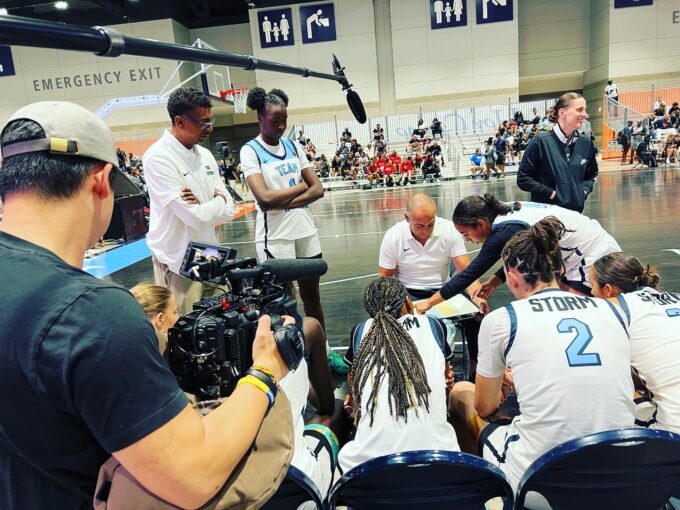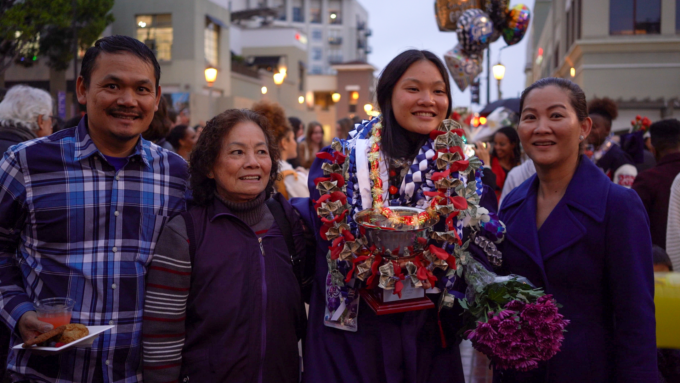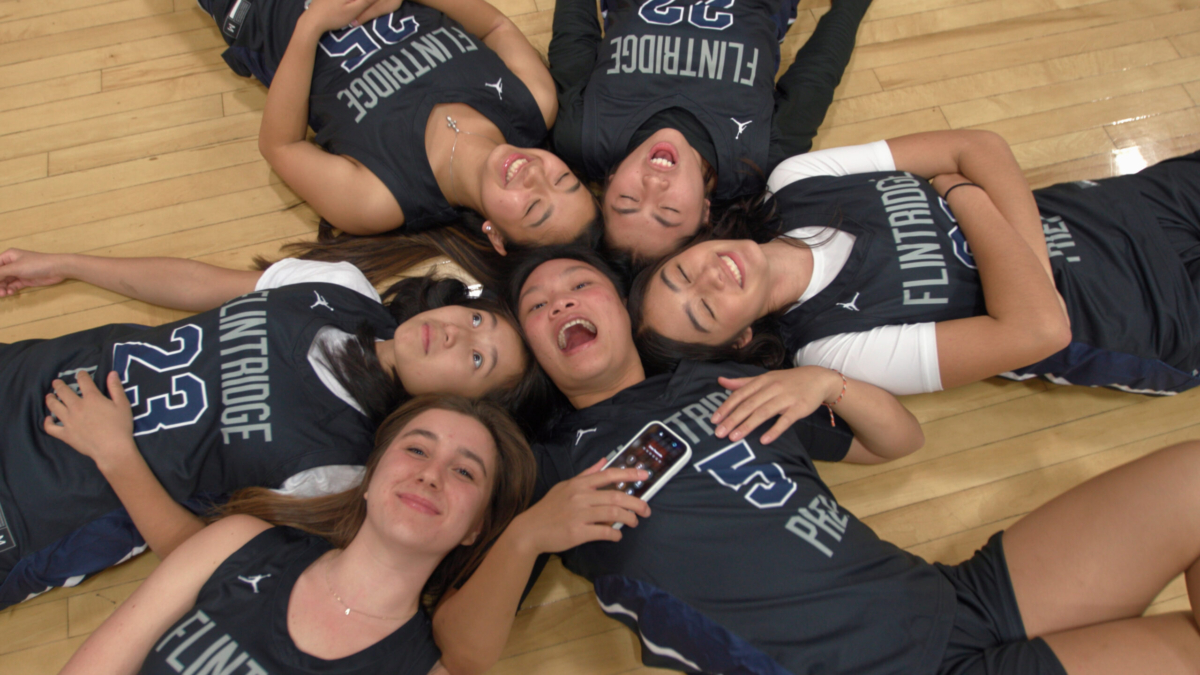The high stakes of Ashley Chea’s hoop dreams
Through what was initially a project about the formation of Asian American basketball leagues, director Erica Tanamachi and producer Jenn Lee Smith found a contemporary story that they could intertwine within the historical context of Asian basketball. This rabbit hole led to them finding Ashley Chea, a second-generation Cambodian American basketball prodigy. Their documentary, “Home Court,” follows Chea as she navigates high school life as one of the country’s top prospects. Suffering a devastating PCL tear which caused her to miss the entirety of the season, Ashley’s persistence and determination to get back on the court inspires the audience as they begin to see the growth in her skill level, leadership, and maturity. However, the film is about more than just basketball – it shows layers of diasporic and familial histories that parallel Ashley’s journey through school and the decisions she has to make for herself.
The real beginning of Ashley’s story starts with her grandmother. In her interview, she describes a time during the Khmer Rouge’s reign over Cambodia in the 1970s where she had to escape soldiers on her bike while they were shooting at her. Ultimately, she fled their home country to the United States as a refugee. While the history of Cambodia may be less known, producer Brandon Soun, who is also a second-generation Cambodian American, believes that this story has the potential to reach a wider array of audiences, to communities outside the Asian American Pacific Islander (AAPI) space. He stated that though the Khmer Rouge is unfortunately an essential part of our history, “it needs to be contextualized, and that way we can move our stories past that and reflect how it is now in a more prosperous and resilient story context,” such as the case with Ashley. The sacrifices in her family’s history will always be tied to her, and it is in her hands to realize it and continue her path forward.

Following the family for several years, Brandon Soun found shades of his younger self in Ashley’s story and the complex family dynamics of immigrant refugee parents and their children. He stated, “where I am right now, I can say that I was in the same position as Ashley in not really understanding my culture, not engaging with my parents, and feeling ashamed of my background.” Through these examinations, he felt it was important to show what children of refugees go through and how they navigate their world without the help of their parents, but also show the sacrifices their parents have made to get their children to where they are now, and ultimately where they want to be. Soun reflected that “it takes time to really heal, get closer to your parents, learn more about your culture and identity, and to seek out more spaces where you can find community and people who look like you and share the same upbringing.”
Growing up, Ashley played for a basketball club in a local league for Asian and Asian American kids where she experienced racism early on in interleague games but overcame the adversity and stereotypes after she and her teammates proved their skills on the court. Gaining prominence after World War II, Asian American basketball leagues served as safe spaces for Asian Americans to play ball and build their communities. Like many that came before her, Ashley also found love for the game and safety in it. There is such a deep history in Asian American basketball leagues that even Ashley’s coach, Jayme Kiyomura Chan, has direct ties to them, as her father played in these leagues and went on to be the founder of Yonsei Basketball in the 1990s.
By the time Ashley reaches her senior year, the stakes are at their highest. With a newfound mindset as team captain, Ashley leads the Flintridge Wolves as they roll through the competition to win the league title, advancing to the state tournament where their cinderella story comes to its bittersweet end. All she can do afterward is reflect and appreciate her last season and high school career before moving on to college.

Acknowledging the context of our histories allows us to find our place in the bigger picture of which we are a part. Ashley Chea’s story is strengthened by those who came before her, as many prominent Asian and Asian American figures have paved the way for girls like her to be accepted and celebrated in these spaces instead of just being tolerated. Brandon Soun hopes that “folks can find a piece of themselves in the film in whatever way they can” and perhaps be inspired by Ashley or the many other people portrayed in the film, because “we’re in a place where our community can succeed and thrive, and create the spaces to have our stories told and our voices heard.”
The timing of this film could not have been more perfect with the exponential rise in popularity of women’s sports, especially with the WNBA. Through the joys and pains of basketball, Ashley Chea wants people to know that “if I don’t play well, it’s not because I’m Asian, it was just because I was having a bad day.”
“Home Court” screened at the 47th Asian American International Film Festival.

